Pet Supplies

Balinese Cats: The Graceful Dancers of the Feli...
Among the world’s most captivating cat breeds, the Balinese stands out for its combination of athletic elegance and deep affection for people. Often described as the “longhaired Siamese,” the Balinese...
Balinese Cats: The Graceful Dancers of the Feli...
Among the world’s most captivating cat breeds, the Balinese stands out for its combination of athletic elegance and deep affection for people. Often described as the “longhaired Siamese,” the Balinese has earned a reputation as a lively, talkative, and graceful companion—one whose beauty is matched only by its intelligence and devotion.

Siberian Cats: Hypoallergenic Felines for Aller...
Siberian cats have long captivated cat lovers with their striking appearance, affectionate personalities, and unique history. Originating from the vast forests of Russia, these cats have earned a reputation not...
Siberian Cats: Hypoallergenic Felines for Aller...
Siberian cats have long captivated cat lovers with their striking appearance, affectionate personalities, and unique history. Originating from the vast forests of Russia, these cats have earned a reputation not only for their beauty and playful nature but also for being one of the few breeds considered hypoallergenic cats. For Australian pet owners who suffer from allergies but still dream of welcoming a feline friend into their home, Siberian cats offer a promising solution.

Scottish Folds: The Cats with the Adorable Fold...
With their signature “owl-like” faces and sweet, soulful eyes, Scottish Fold cats have captivated the hearts of cat lovers worldwide, including a growing number of pet owners in Australia. Instantly...
Scottish Folds: The Cats with the Adorable Fold...
With their signature “owl-like” faces and sweet, soulful eyes, Scottish Fold cats have captivated the hearts of cat lovers worldwide, including a growing number of pet owners in Australia. Instantly recognisable thanks to their unique folded ears—a result of a natural genetic mutation—Scottish Folds have become a symbol of feline charm and gentle companionship. Yet, beneath their adorable exterior lies a breed with a fascinating history, distinctive needs, and some important health and ethical considerations that every potential owner should understand.
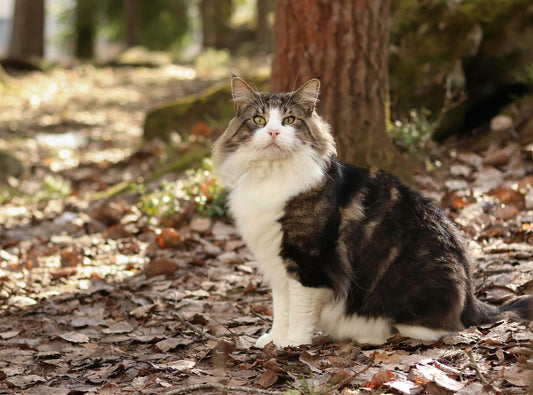
Norwegian Forest Cats: Majestic and Independent
The Norwegian Forest Cat, often called “Wegie” by devoted enthusiasts, is a breed that seems to have stepped straight from the pages of Norse mythology into modern living rooms. Known...
Norwegian Forest Cats: Majestic and Independent
The Norwegian Forest Cat, often called “Wegie” by devoted enthusiasts, is a breed that seems to have stepped straight from the pages of Norse mythology into modern living rooms. Known for their breathtaking looks—long, thick coats, striking eyes, and a regal bearing—these cats are as practical as they are beautiful, having evolved to withstand the harsh climates of Scandinavia. Their charm lies not only in their majestic appearance but also in their independent yet affectionate nature.
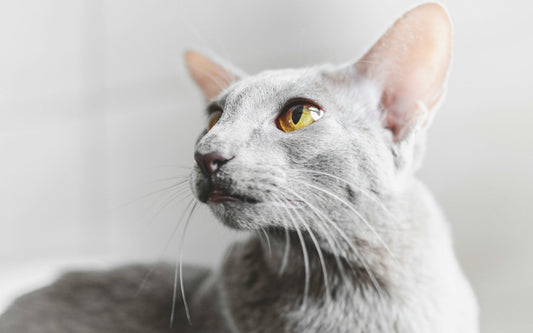
Oriental Shorthairs: Sleek, Smart, and Social
There is a saying among devoted cat lovers: “Once you share your home with an Oriental Shorthair, no other cat will ever quite compare.” With their elegant lines, expressive faces,...
Oriental Shorthairs: Sleek, Smart, and Social
There is a saying among devoted cat lovers: “Once you share your home with an Oriental Shorthair, no other cat will ever quite compare.” With their elegant lines, expressive faces, and endlessly curious personalities, Oriental Shorthairs are a breed apart—captivating the hearts of pet owners across Australia and around the world.

Collar-Activated Cat Bowls: Benefits and Featur...
Collar-activated cat bowls contain a sensor that picks up on the cat’s collar. This lets the bowl unlock food or water for the right pet only. They prevent food-sharing, which...
Collar-Activated Cat Bowls: Benefits and Featur...
Collar-activated cat bowls contain a sensor that picks up on the cat’s collar. This lets the bowl unlock food or water for the right pet only. They prevent food-sharing, which is useful for multi-cat households with one or more cats on special diets or with allergies. In Australia, where multi-pet homes are the norm, this tech can prevent greedy pets from stealing meals. Vets say these bowls assist with weight control and can reduce anxiety in cats that guard food.
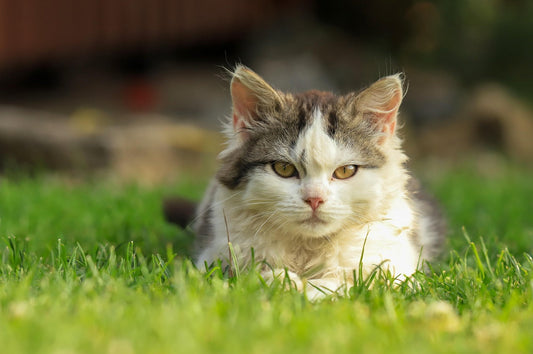
Australian Mist – The Homegrown Aussie Cat Breed
The Australian Mist is more than just a cat; it’s a symbol of Australian ingenuity, companionship, and domestic harmony. As one of the few cat breeds developed entirely within Australia,...
Australian Mist – The Homegrown Aussie Cat Breed
The Australian Mist is more than just a cat; it’s a symbol of Australian ingenuity, companionship, and domestic harmony. As one of the few cat breeds developed entirely within Australia, the Australian Mist stands apart not just for its origins but for its unique blend of personality, adaptability, and beauty. For pet owners seeking a cat that fits seamlessly into the modern Australian household—whether that’s a bustling family home in Sydney, a quiet apartment in Melbourne, or a rural property in the Outback—the Australian Mist offers a rare and rewarding experience.
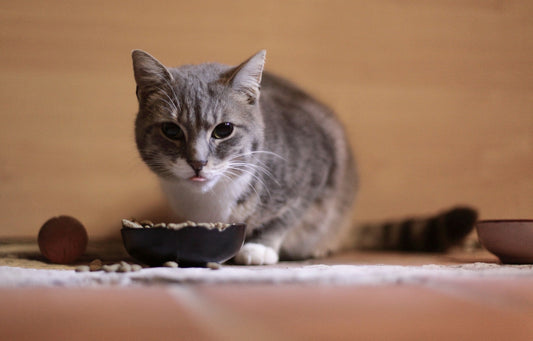
Orthopedic Cat Bowl - Elevated Anti-Vomiting De...
When selecting an orthopaedic cat bowl, pay attention to the bowl's height, angle and material. Ensure they’re right for your cat and Australian standard! Elevated bowls can assist with neck/joint...
Orthopedic Cat Bowl - Elevated Anti-Vomiting De...
When selecting an orthopaedic cat bowl, pay attention to the bowl's height, angle and material. Ensure they’re right for your cat and Australian standard! Elevated bowls can assist with neck/joint pain, making mealtimes less difficult for cats (particularly older ones). Shallow, wide bowls are good for whisker stress, which is prevalent in many of the breeds here. Stainless steel and ceramic are your best bets for effortless cleaning and safety. Keep clear of plastic, it can crack and hide germs!

Tonkinese Cats: The Best of Both Worlds
Choosing a cat breed is a decision that shapes not only your home environment but your daily life and relationships for years to come. In Australia, cat lovers are spoiled...
Tonkinese Cats: The Best of Both Worlds
Choosing a cat breed is a decision that shapes not only your home environment but your daily life and relationships for years to come. In Australia, cat lovers are spoiled for choice, but few breeds offer the unique “best of both worlds” appeal quite like the Tonkinese. With their soft, expressive eyes and social nature, Tonkinese cats are the result of blending the affectionate, people-oriented Burmese with the elegant, vocal Siamese.
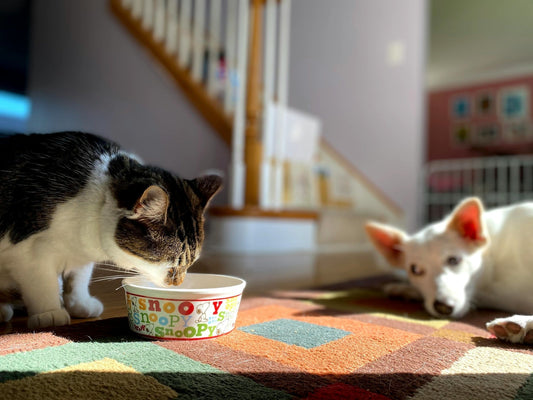
Are Slow Feeding Bowls Safe for Cats? - A Compr...
Key Takeaways Are slow feeding bowls safe for Aussie cats? Just ensure they’re constructed from sturdier and non-toxic materials such as stainless steel or BPA-free silicone. These bowls promote slow...
Are Slow Feeding Bowls Safe for Cats? - A Compr...
Key Takeaways Are slow feeding bowls safe for Aussie cats? Just ensure they’re constructed from sturdier and non-toxic materials such as stainless steel or BPA-free silicone. These bowls promote slow eating. This decreases the chances of us having to deal with vomiting, digestive upset, and obesity in our kitties. Slow feeders are great for mental stimulation, particularly in indoor cats, supporting physical and mental health. Not all cats take to slow feeders, though. Watch your cat’s behaviour and test out different styles if necessary. Go with a slow feeder that fits your cat’s eating style and food type. Ensure that it’s easy to clean for hygiene! “Always, always check with your local vet before trying a new feeding method.” This is particularly the case if your cat has any health issues or special requirements. These bowls slow feeding down, which may reduce the chance of vomiting and bloating in most healthy cats. In Australia, many vets approve of slow feeders for indoor cats that gobble their food or require weight management. It’s essential to pick a bowl that’s the right size for your cat and their age. Stainless steel and ceramic bowls shine through as the better options. They are easy to clean and less allergenic. Some cats can be picky about new bowls, so monitoring their eating is important. The next highlights the pros and cons before making the switch. What's a Slow Feeder Bowl? A slow feeder bowl is a pet dish designed to slow down a cat’s eating speed. Unlike normal bowls, slow feeders feature raised ridges, swirling patterns or maze-like shapes. These create barriers that force a cat to work a little harder to get to their food. Because at its heart is the desire to help dogs eat more healthily and digest better. Understanding Slow Cat Feeders Slow cat feeders solve the issue of rapid eating, which is prevalent in many Aussie homes. If a cat eats too fast, they can regurgitate their food. Slower eating reduces vomiting and keeps digestion on track,” says Dr. Sarah Goldsmith, a Melbourne-based feline vet. Puzzle designs in slow feeders do more than just slow down eating. They offer cats a little brain workout, too, making mealtimes more stimulating! This additional challenge aids portion control, which is essential for cats that are prone to being overweight. Not all cats are equal, however. Some appreciate the challenge, whereas other dogs might get frustrated and leave. Most bowls vary in terms of shape, size, and material to cater for cats’ personal tastes. How They Differ From Normal Bowls It’s all in the design. Normal bowls are generally flat and open, while slow feeders shatter the surface with obstacles. These make sure food stays inside the bowl, not outside it. They’re great even for paw-happy cats! Made from materials like BPA-free plastic, stainless steel or ceramic, they’re ideal for allergy-prone cats or those with sensitive whiskers. The Goal: Slower, Healthier Eating The goal is simple – assist kitties to eat at a more secure speed. Eating slower helps with digestion, reduces vomiting, and gives owners greater control over portion sizes. This is why slow feeder bowls are a good option to help control weight and promote health. Why Do Cats Eat So Fast? Aussie cat owners often observe their lovely felines ‘gobble’ down meals in record time, which isn’t just a quirky habit! This behavior is influenced by instinct, environment, and health. Understanding these eating habits highlights the benefits of using slow feed cat bowls, which can help promote a healthier pace for cats today. Instincts from Their Wild Ancestors Cats are descended from wild hunters that needed to eat fast - or risk losing what they’d caught. When it comes to hunting in the wild, food is hard to come by, and a leisurely dinner could see that meal taken by another animal. That instinct might stay with house cats, even if their bowl is never empty. Dr. Sarah Ellis, a behavioural expert, notes this interesting fact: many household cats still show bursts of predatory energy. Their fast eating is a hangover from their feral ancestors! Even indoor cats can gorge, as the survival instinct kicks in. Competition with Other Pets In multi-cat - or dog - households, mealtime is like a race. Cats could be encouraged to eat fast out of a sense of competition, even if there is enough food. Separate feeding spots or staggered meal times can help reduce the anxiety and slow things down. Multi-pet households tend to experience increased post-meal vomiting as cats wolf down food to not lose out. Underlying Health or Hunger Issues Eating quickly can be a sign of health problems too. Hyperthyroid conditions or diabetes make cats hungrier, hence their fast eating. Habits of eating (and speed of eating) can be altered for many reasons, a significant one being anxiety or stress. Monitor your cat’s eating behaviour,” advises local vet Dr Lisa Chimes. If something changes, consult your vet! Boredom or Lack of Stimulation Boredom or no mental stimulation can cause cats to regard mealtimes as their primary excitement. Fast eating could mean your cat is bored. Puzzle feeders or food-dispensing toys provide kitties with a task and decelerate the action. Because I have a habit of switching up feeding schedules to make meals exciting! Just Plain Love of Tucker! So some cats are just chow hounds. Excitement over a beloved flavour or morsel can send them into a eating frenzy. It’s beautiful to see a cat with their food! Moderation is key – see if slow feeding bowls or treats fed by hand help to keep them healthy. Slow Feeder Safety: The Lowdown Cat slow feeders, particularly the slow feed cat bowls, are becoming more common in Australia. This is especially the case for owners that notice their fast eater cats wolfing down their food. Although a slow feeder dish aids in digestion and provides mental stimulation, safety is paramount. Let’s run through the key safety bullet points and highlight what to consider when selecting a slow cat feeder. 1. Bowl Materials: What's Safe, Mate? Safety of materials is crucial. Food-grade silicone, ceramic and stainless steel slow feeders are the best options. They’re easy to clean and don’t scratch as easily. Plastic bowls can be dangerous – cheaper types may scratch, allowing bacteria to gather, and can leach chemicals such as BPA. Choose BPA-free and certified pet-safe materials to minimise risks,” advises Dr Brooke Schampers, a Queensland vet. Be sure to look for markings or certification that shows the bowl’s safe. 2. Potential Choking and Tooth Worries Some slow feeders have deep grooves or crevices. These can catch kibble, increasing the risk of choking or dental damage. Observe your cat while it eats and make sure food isn’t getting stuck. Choose feeders with smooth wave patterns and wide gaps. ‘Request regular dental checks from your vet, especially if you start to notice changes in chewing,’ she adds. 3. Cat Frustration: A Real Issue? Not all cats enjoy puzzles at mealtimes. Frustration signals – such as aggression or neglecting the food – indicate the feeder may be too well concealed. One Sydney-based behaviourist, Dr Kim Kendall, recommends beginning with basic designs for fussy or elderly cats. 4. When Are They a Bad Idea? Slow feeders aren’t suitable for all cats, though. Flat bowls are best for dental pain, arthritis or extreme anxiety, you’ll be better off. Personalised food puzzles can make mealtimes more enjoyable. If your cat isn’t able to adjust, consider offering smaller, more frequent meals. 5. Chat to Your Aussie Vet First Always check with your vet first. Vets can advise on the suitability of slow feeders based on your cat’s age, health, and eating patterns. If your cat is eating less or eating more, tell your vet! More Than Just Slow Eating Slow feeder bowls are more than just a way to slow your cat down. For a number of Aussie pet owners, these feeders are just one aspect of a holistic approach to cat care. Slow feeders do more than simply prevent greedy eating. The right one nurtures your cat body and mind, reinforcing well-being for life and promoting better practices in the home. Better Digestion for Your Furry Friend Furthermore, cats that eat too fast often swallow air, which can cause bloating and discomfort. Slow feeders assist by delaying meals which support digestion and nutrient absorption. Vets around Australia have noticed an interesting trend. Steady eaters are less prone to upset tummies, diarrhoea or constipation. Monitor your cat’s litter box after you switch to a slow feeder. These alterations can signal early signs of better gut health! Helping with Weight Management Over half the cats presented in Australian clinics are overweight or obese. The proper portion control is crucial for cat obesity prevention,” states Dr Kate Mornay, a Sydney-based vet. Slow feeders prolong every meal, encouraging the appetite and reducing overindulgence. These bowls make it easier to follow recommended portions, meaning weight loss occurs gradually and safely. Mental Workout for Your Cat There’s a really strong instinct to hunt and forage in cats. Puzzle-style slow feeders challenge them mentally, interrupting the repetition of being indoors and relieving boredom. Rotating feeder types keeps meals interesting and fun, promoting wellness beyond physical health. Reducing Vomiting and Regurgitation Fast eating usually involves eating (and vomiting/regurgitating) soon afterwards. Eating more slowly, as promoted by slow feeders, can avert this. Less messes and a happier, more comfortable cat will be waiting. Any Downsides to Slow Feeders? Although slow feed cat bowls provide genuine advantages for numerous Australian cats, they are not a solution that fits all. Some cats enjoy the challenge of a slow feeder dish, while others may find it too challenging or not interesting. So what are the main downsides, and how might they impact your feline at home? Not All Cats Take to Them Some cats simply aren’t keen on slow feeders. They may just turn their noses up at the bowl or become frustrated, particularly if they’re accustomed to ordinary dishes. Food-driven or anxious cats can get frustrated, making mealtime stressful. Some cats get obsessed with retrieving the food. This can create mess or even become aggressive,” says Dr Kate Mornay, a Sydney-based kitty vet. You need to see your cat’s reaction. Experiment with other shapes or patterns to see what your cat likes. Patience and careful attention make the transition a lot easier. Some Designs Are a Pain to Clean Some slow feeders have multiple grooves, nooks or tight corners. They can catch food and make for difficult cleaning. If it is not cleaned properly, bacteria can build up. This can endanger your cat’s health, particularly in hot, humid environments such as Queensland. Opt for smooth, dishwasher safe bowls to save time and keep things hygienic. Frequent cleaning is essential – plastic can breed bacteria, so many vets recommend ceramic or steel. Can Be Messy with Wet Food Wet food in slow feeders can be a messy affair. Certain designs don’t contain spills very well, resulting in sticky patchy messes on your kitchen floor. For cats with wet diets, select slow feeders made for liquids or softer food. These typically have fewer ridges and deeper sides. Cleaning up after every meal prevents smells and deters bugs. Pick the Perfect Slow Feeder Choosing the ideal slow feed cat bowl for your kitty involves more than just looks; it must align with your cat's eating habits, type of pet food, and personality. An appropriately sized slow feeder dish helps prevent issues like regurgitation, promoting better digestion while providing a slight mental challenge. Let’s delve into the specifics of selecting the best option. Consider Your Cat's Personality Cats vary in their reaction to slow feeders. A nosy or mischievous cat might go for puzzle bowls, treating them as a game. For the more timid or nervous of felines, a less fussy design can ease mealtime stress. It’s best to observe your cat to see how they respond with different feeder styles,” says Dr D'Amato. This’ll help you select one that keeps them occupied without causing annoyance. Matching enrichment to a cat’s specific personality is key, says Dr. Kate Mornement, a leading animal behaviourist. This method increases a cat’s interest and decreases the chances of feeding problems. Match Bowl to Food Type Not all slow feeders suit all food. Bowls with deep grooves are well-suited to dry kibble, whereas wider, shallower patterns are better for wet food. Wet food can often seize up in corners, meaning feeding time can be far messier and less fun! For mixed diets, some bowls provide inserts or removable barriers to make them more versatile. Take the food and the feeder’s size and shape into account. Easy Cleaning is Key It needs to be easy to clean in order to avoid bacteria build-up. Dishwasher-safe stainless steel and BPA-free plastic make your life easier too. Avoid feeders with deep crevices, as crumbs can become lodged. Occasional cleaning with a weak bleach solution keeps it safe and healthy for your pet. Check for Sturdy, Safe Design The stability stops tipping and mess. Seek out feeders with a weighted base or non-slip bottom. Materials should be non-toxic and tough enough to withstand daily use. Durability counts, particularly for bigger or determined cats. A few feeders even allow you to programme several small meals a day, for added convenience. Conclusion Slow feeder bowls are a great option to give cats a fighting chance at mealtimes. These bowls prevent gulping, lower the risk of choking and make dinner time just that little bit more fun. In most Aussie homes, cats use them without issue. Some may take a moment to learn the new trick, but the majority catch on very quickly. Good bowls demonstrate durable construction, safe materials, and easy cleaning. Keep an eye on your cat at first, but the majority adapt readily. A slow feeder works for all cats, from city apartments to country houses. Eager to aid your cat in slowing down or to keep them occupied? Try a slow feeder and see the difference for yourself. Your cat’s wellbeing is important! Frequently Asked Questions Are slow feeder bowls safe for cats in Australia? Yes, slow feed cat bowls are safe for most felines, as they are crafted from pet-safe materials and help minimize the risk of choking and vomiting. Can any cat use a slow feeder bowl? The majority of cats today can benefit from slow feed cat bowls, while flat-faced cats or special needs felines may require a different style. Do slow feeder bowls help with hairballs? Can slow feed cat bowls reduce hairballs? A slow cat feeder promotes slower eating, leading to less air ingested and reduced regurgitation! How do I clean a slow feeder bowl? Most slow feed cat bowls in Australia are dishwasher-safe, while others can simply be washed in warm soapy water. Can kittens use slow feeder bowls? Are slow feed cat bowls safe for kittens? Simply select a slow feeder dish with a small-mouth-appropriate design. Will a slow feeder bowl stop my cat from overeating? Slow feed cat bowls can help slow down eating habits but won’t prevent overeating altogether; portion control is still required. Are plastic slow feeder bowls safe for cats? Plastic slow feed cat bowls are safe if they’re BPA-free and of good quality, while ceramic or stainless steel slow feeder dishes might be best for plastic-sensitive cats.
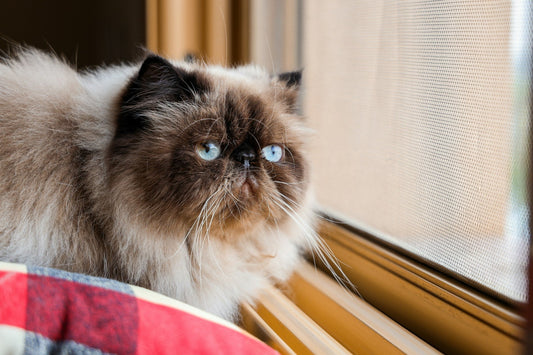
Himalayan Cats: The Persian-Siamese Blend
The Himalayan cat, sometimes lovingly called the “Himmie,” is a captivating feline breed that draws admirers from around the world—including right here in Australia. As a carefully crafted blend of...
Himalayan Cats: The Persian-Siamese Blend
The Himalayan cat, sometimes lovingly called the “Himmie,” is a captivating feline breed that draws admirers from around the world—including right here in Australia. As a carefully crafted blend of the luxurious Persian and the elegant Siamese, the Himalayan combines regal beauty with a charming personality. With their sapphire-blue eyes, colour-pointed coats, and affectionate disposition, Himalayans are frequently described as “the best of both worlds.”

The Health Benefits of Elevated Cat Bowls - Wha...
Elevated cat bowls mean that cats can eat and drink in a more natural, relaxed fashion. They keep Aussie homes cleaner! Elevated bowls are higher off the ground. This design encourages...
The Health Benefits of Elevated Cat Bowls - Wha...
Elevated cat bowls mean that cats can eat and drink in a more natural, relaxed fashion. They keep Aussie homes cleaner! Elevated bowls are higher off the ground. This design encourages senior kitties or those with joint pain to not crouch as low. It’s better for comfort and can ease mealtimes on their neck and back!
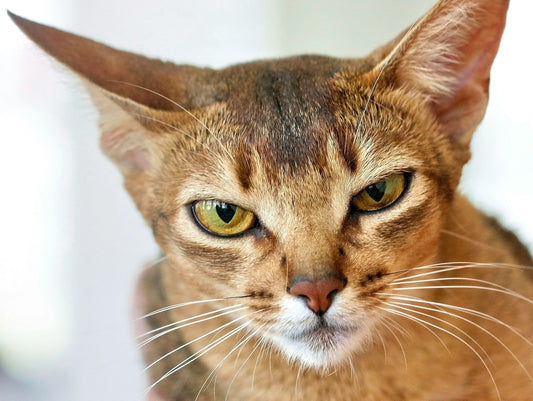
Abyssinian Cats: Active and Intelligent Felines
The Abyssinian cat is a breed that captivates hearts and minds alike, known for its remarkable intelligence, boundless energy, and striking appearance. Often described as the "athlete" of the feline...
Abyssinian Cats: Active and Intelligent Felines
The Abyssinian cat is a breed that captivates hearts and minds alike, known for its remarkable intelligence, boundless energy, and striking appearance. Often described as the "athlete" of the feline world, the Abyssinian is more than just a pretty face; it is a companion that brings adventure, joy, and a touch of the exotic into the homes of Australian pet lovers.
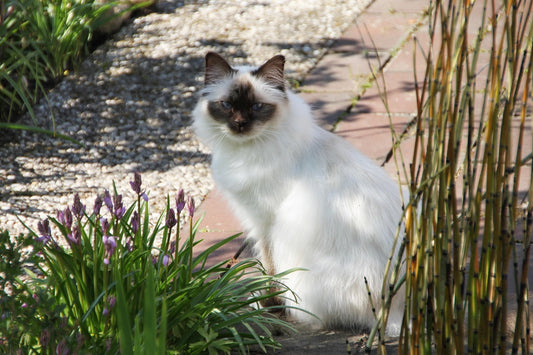
Birman Cats – Sacred Companions with a Gentle N...
Birmans are often called the “Sacred Cats of Burma,” and their origin story is steeped in myth. According to legend, these cats were companions to temple priests in ancient Burma...
Birman Cats – Sacred Companions with a Gentle N...
Birmans are often called the “Sacred Cats of Burma,” and their origin story is steeped in myth. According to legend, these cats were companions to temple priests in ancient Burma (now Myanmar). The story tells of a devoted cat named Sinh, whose transformation at the moment of his priestly master’s death—changing from white to golden with striking blue eyes and snow-white paws—was a divine reward for loyalty and faith. While historians acknowledge this story as beautiful folklore, it has helped shape the breed’s aura of mystery and reverence worldwide.

The Hairless Sphynx Cat: The Ultimate Guide to ...
Few cat breeds evoke the same mix of fascination, affection, and curiosity as the Sphynx cat. With its striking hairless appearance, expressive eyes, and charming personality, the Sphynx has captured...
The Hairless Sphynx Cat: The Ultimate Guide to ...
Few cat breeds evoke the same mix of fascination, affection, and curiosity as the Sphynx cat. With its striking hairless appearance, expressive eyes, and charming personality, the Sphynx has captured the hearts of cat lovers around the world—including in Australia. But beyond the unique look lies a deeply affectionate and social breed, renowned for forging strong bonds with their human companions and providing endless entertainment and love.
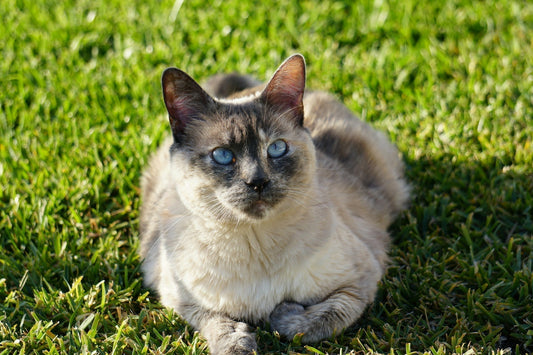
Siamese Cats: Vocal and Affectionate Companions
The Siamese cat is more than just a striking beauty—this breed’s intelligence, curiosity, and extraordinary vocalisation have made it a captivating presence in homes worldwide. In Australia, Siamese cats have...
Siamese Cats: Vocal and Affectionate Companions
The Siamese cat is more than just a striking beauty—this breed’s intelligence, curiosity, and extraordinary vocalisation have made it a captivating presence in homes worldwide. In Australia, Siamese cats have found a dedicated following among pet lovers seeking not only a pet but a true companion. Their signature blue almond-shaped eyes, elegant lines, and contrasting points are instantly recognisable, but it’s their personality—outspoken, affectionate, and endlessly engaging—that wins hearts.
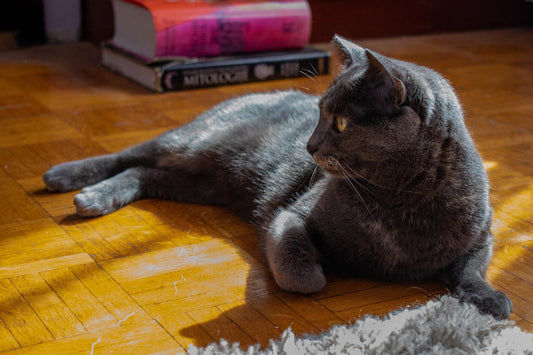
The Elegant Russian Blue: A Quiet Companion
Among the world’s most cherished cat breeds, the Russian Blue stands apart for its ethereal beauty, refined manners, and mysterious charm. With their shimmering blue-grey coat and enchanting emerald eyes,...
The Elegant Russian Blue: A Quiet Companion
Among the world’s most cherished cat breeds, the Russian Blue stands apart for its ethereal beauty, refined manners, and mysterious charm. With their shimmering blue-grey coat and enchanting emerald eyes, Russian Blues have quietly found their way into the hearts of cat lovers across Australia and the globe. These cats are more than just a pretty face—they’re intelligent, gentle, and deeply loyal companions, thriving in peaceful, loving homes.
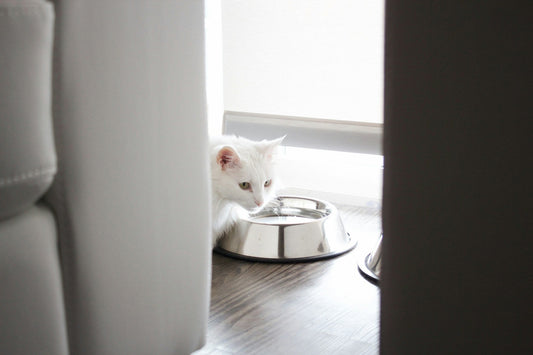
Essential Materials for Building a Feral Cat Fe...
What materials are used in cat feeding stations? In Australia, these are likely to include stainless steel bowls, non-slip mats, raised surfaces and easy-to-clean trays. Stainless steel remains rust-free and safe...
Essential Materials for Building a Feral Cat Fe...
What materials are used in cat feeding stations? In Australia, these are likely to include stainless steel bowls, non-slip mats, raised surfaces and easy-to-clean trays. Stainless steel remains rust-free and safe for cats, while ceramic is excellent at keeping water cool. With raised feeders, use bamboo or recycled timber wherever possible. These materials not only resist the local weather, but beautify their homes.

Persian Cats: The Luxurious, Gentle Icons of th...
Persian cats have long been synonymous with luxury, elegance, and grace. Recognised by their sumptuous long coats, expressive eyes, and gentle temperament, these cats have captured the hearts of pet...
Persian Cats: The Luxurious, Gentle Icons of th...
Persian cats have long been synonymous with luxury, elegance, and grace. Recognised by their sumptuous long coats, expressive eyes, and gentle temperament, these cats have captured the hearts of pet lovers worldwide—including a rapidly growing community here in Australia. While their poised appearance and regal lineage are well-known, there is much more to Persian cats than meets the eye.
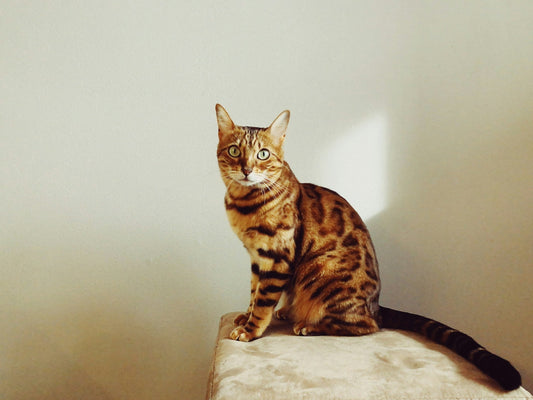
Bengal Cats: Wild Looks with a Loving Heart
Bengal cats are a breed that stops people in their tracks. With their striking rosette-spotted coats, muscular build, and penetrating gaze, they could easily be mistaken for a miniature wildcat...
Bengal Cats: Wild Looks with a Loving Heart
Bengal cats are a breed that stops people in their tracks. With their striking rosette-spotted coats, muscular build, and penetrating gaze, they could easily be mistaken for a miniature wildcat lounging on your couch. But beneath this fierce facade lies a loving, loyal companion known for their intelligence, energy, and bond with humans.

Understanding the British Shorthair: Traits and...
Australia’s love for cats continues to grow, and among the breeds rising in popularity is the dignified, teddy bear-like British Shorthair. With its plush double coat, calm temperament, and charmingly...
Understanding the British Shorthair: Traits and...
Australia’s love for cats continues to grow, and among the breeds rising in popularity is the dignified, teddy bear-like British Shorthair. With its plush double coat, calm temperament, and charmingly serious face, this breed has carved out a special place in Australian homes — from bustling inner-city apartments in Melbourne to sun-drenched suburban houses in Brisbane.

How to Make an Insulated Cat Box: Step-by-Step ...
To create an insulated cat box, you’ll need a strong plastic tub. Then line it with foam or old blankets, and use a second, smaller tub inside for additional warmth....
How to Make an Insulated Cat Box: Step-by-Step ...
To create an insulated cat box, you’ll need a strong plastic tub. Then line it with foam or old blankets, and use a second, smaller tub inside for additional warmth. This is the way many Aussie cat owners keep stray or outdoor cats safe. This is particularly crucial in southern climes, where winters can nip with frigid winds and rain. Grab foam panels or polystyrene from Bunnings, and use snug-lidded tubs to insulate against draughts. Cut a small entrance, but offset it to prevent wind entering.
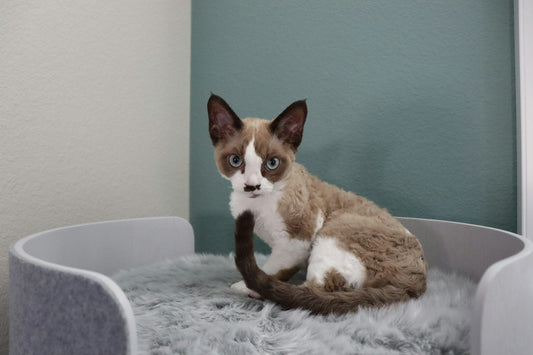
Devon Rex Cats: The Playful Elves of the Cat World
The Devon Rex cat is one of the most enchanting and captivating breeds in the feline world, known affectionately as the “playful elf” of the cat kingdom. With its unmistakable...
Devon Rex Cats: The Playful Elves of the Cat World
The Devon Rex cat is one of the most enchanting and captivating breeds in the feline world, known affectionately as the “playful elf” of the cat kingdom. With its unmistakable curly coat, outsized ears, and wide, sparkling eyes, the Devon Rex embodies a whimsical charm that instantly attracts attention. But this breed is much more than its quirky looks—Devon Rex cats are celebrated for their intelligence, boundless energy, and loving companionship, making them a standout choice for Australian pet owners seeking a pet with true personality.

Ragdoll Cats: Make the Perfect Family Pet
If you're searching for the ideal feline companion for your family, the Ragdoll cat might just be the perfect match. Famous for their calm, friendly temperament and striking blue eyes,...
Ragdoll Cats: Make the Perfect Family Pet
If you're searching for the ideal feline companion for your family, the Ragdoll cat might just be the perfect match. Famous for their calm, friendly temperament and striking blue eyes, Ragdolls have earned a stellar reputation among Australian pet owners. Their ability to adapt to various household environments — whether it's a bustling family with kids or a quiet home with elderly members — sets them apart from many other cat breeds.

Burmese Cats: Energetic Companions for Active H...
Not all cats are content to lounge in silence or keep to themselves. If you're looking for a feline friend who will follow you from room to room, chirp for...
Burmese Cats: Energetic Companions for Active H...
Not all cats are content to lounge in silence or keep to themselves. If you're looking for a feline friend who will follow you from room to room, chirp for attention, and initiate play sessions with gusto, the Burmese cat may be your perfect match. Known for their dog-like loyalty and playful antics, Burmese cats are a popular choice among Australian pet owners who lead active lifestyles and crave connection with their pets.
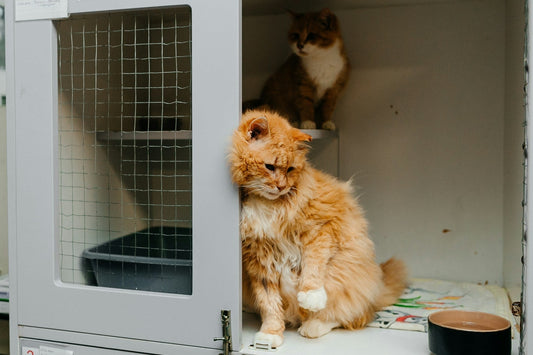
DIY Insulated Multi-Cat Winter Shelter for Aust...
An insulated multi-cat winter shelter gives stray and feral cats a safe and warm spot to ride out Aussie winters. In most communities, outdoor cats are exposed to cold, wind,...
DIY Insulated Multi-Cat Winter Shelter for Aust...
An insulated multi-cat winter shelter gives stray and feral cats a safe and warm spot to ride out Aussie winters. In most communities, outdoor cats are exposed to cold, wind, and rain that can adversely impact their health. Constructing a shelter protects them against extreme climates, provides warmth and dryness, and reduces danger from other animals.
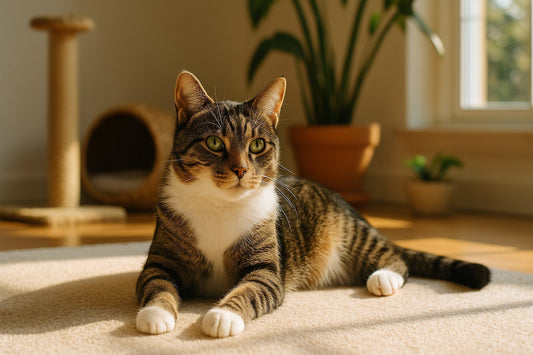
The Ultimate Guide to Caring for Your Domestic ...
In the landscape of feline companionship, few cats are as widespread, loved, and yet as misunderstood as the Domestic Shorthair. Often dubbed “moggies” in Australia, these cats grace more homes,...
The Ultimate Guide to Caring for Your Domestic ...
In the landscape of feline companionship, few cats are as widespread, loved, and yet as misunderstood as the Domestic Shorthair. Often dubbed “moggies” in Australia, these cats grace more homes, shelters, and neighbourhoods than any pedigree breed — yet they seldom receive the spotlight they deserve.
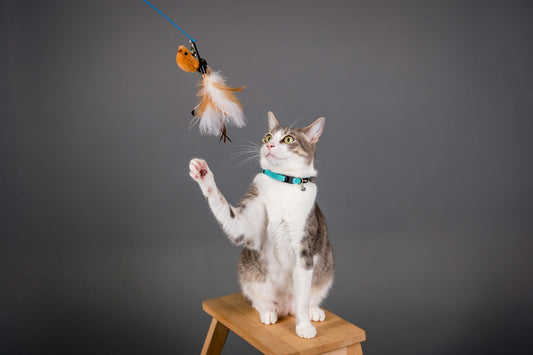
Why Feather Toys are Essential for Your Cat's P...
Feather toys are a great way to stimulate cat’s play behaviour by engaging your kitty’s inner predator. Australian vets and animal behaviourists are in full agreement that the majority of...
Why Feather Toys are Essential for Your Cat's P...
Feather toys are a great way to stimulate cat’s play behaviour by engaging your kitty’s inner predator. Australian vets and animal behaviourists are in full agreement that the majority of cats can’t resist the movement, sound and texture of feathers. The fluttering action reproduces birds and small prey that most of the local indoor cats never have the opportunity to chase.
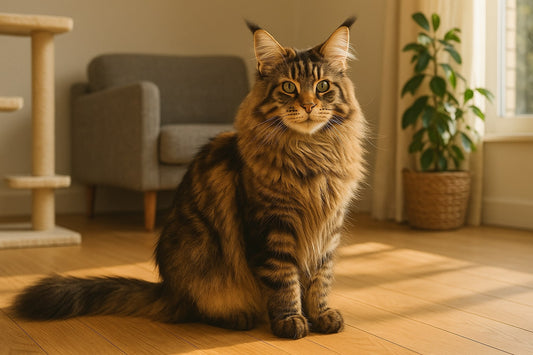
Maine Coon Cats: The Gentle Giants of the Felin...
Maine Coon cats are more than just their impressive size and luxurious coats. Often weighing between 6–11 kg and reaching lengths of up to 1 metre, they captivate pet lovers...
Maine Coon Cats: The Gentle Giants of the Felin...
Maine Coon cats are more than just their impressive size and luxurious coats. Often weighing between 6–11 kg and reaching lengths of up to 1 metre, they captivate pet lovers with their affectionate nature, striking appearance, and playful personalities. Sometimes described as having the best of both worlds—a cat’s independence and a dog’s loyalty—Maine Coons have earned a devoted following globally, including here in Australia.

Laser Pointer Toys for Cats: Benefits, Risks, a...
Laser pointers keep indoor cats healthy, keeping them active, alert and mentally sharp by enticing them to chase an unpredictable prey. The quick-moving dot entertains and stimulates your cat, alleviating...
Laser Pointer Toys for Cats: Benefits, Risks, a...
Laser pointers keep indoor cats healthy, keeping them active, alert and mentally sharp by enticing them to chase an unpredictable prey. The quick-moving dot entertains and stimulates your cat, alleviating boredom and helping prevent bad behavior in your home. According to veterinarians across Australia, brief laser play sessions are an excellent way for indoor cats to receive the exercise they require. Many owners likely only have the option to use a laser pointer in small apartments or houses with limited safe outdoor access. Read on to learn how laser play benefits you and your cat and how to do it safely.
